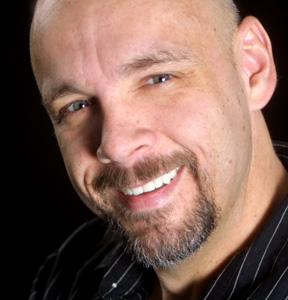Editorial
Front Page - Friday, May 28, 2010
The Critic's Corner
David Laprad

I’m not sure why the makers of “Robin Hood” used the name of the kindhearted bandit for the title of their film. They could have called it “Generic Hero in a Standard Medieval War Movie,” which would have been more accurate.
Although it’s generally believed Robin Hood is a fictional character, some sources suggest he’s based on an actual person. Going by this theory, fact slowly morphed into fable until the story had Robin Hood and his band of merry men stealing from the rich, giving to the poor and serving as a thorn in the flesh of the Sheriff of Nottingham. Adherents to this theory might enjoy the new movie, in which an archer in King Richard’s army becomes the legend.
Ridley Scott, the director of the film, and his writer, Brian Helgeland, do not retell the familiar story, as many other movies have done. Instead, they explore how a myth grew out of events grounded in history.
It’s an interesting approach that unfortunately resulted in a dull and dreary film.
One problem is that Scott and Helgeland don’t do enough to distinguish their story from countless other movies set during the same era. They begin with the death of King Richard in France as he’s returning from the Crusades. During these early scenes, they establish Robin Longstride (not Hood) as an expert archer and an honest man who’s willing to tell the king the truth, even if it means punishment will follow.
After Richard’s death, Longstride, Will Scarlett, Alan-a-Dale and Little John decide to return to England. Along the way, they encounter an impaled Robert of Loxley, who’s drawing his final breath in the wake of an ambush on his party. Longstride promises the dying knight he’ll return his sword to his father, Walter, in Nottingham. (Loxley stole the weapon from his dad and wants it returned so he can rest in peace.)
The man responsible for the ambush was Godfrey, a treacherous mercenary who hopes to spark a French invasion of England. He worms his way into the service of King John of England and then rips through the country, brutally invading towns under the pretense of collecting taxes. In actuality, he hopes to stir up opposition among the barons, thereby making it easy for the French to take over.
When Longstride arrives in Nottingham, Walter encourages him to impersonate Loxley to prevent the crown from seizing his land. This ruse involves pretending to be the husband of Marion, the fair maiden of the legend, but she’s a woman hardened by 12th century English life.
Later, Godfrey kills Walter during a brutal raid on Nottingham. Longstride then rallies King John and the barons to repel the French invasion.
It’s all standard but competently told material. Russell Crowe and Cate Blanchett perform admirably in their respective roles as Robin and Marion, and their romance is not only unforced but also the one effective emotional hook in “Robin Hood.” Working behind the camera, Scott captures all of the muddy battle action and torch lit interiors with the skill of a master. The only downside to the look of the film is the persistent gray pall, which will make your eyeballs ache for a hint of sunlight.
Unfortunately, the solid performances and visually striking skirmishes do not save “Robin Hood” from being an oddly ho-hum experience. How many times can audiences watch a computer generated army storm across a hilly vista before growing bored? What more can a director do to make the swing of an axe into a ready skull new and exciting? And will a screenwriter ever again be able to compose fresh and stimulating dialogue for the political debates between a king and his court in a movie like this?
The biggest downfall of “Robin Hood,” however, is its lack of heart. There’s simply too little for viewers to care about.
Scott must have been aware of the film’s shortcomings, as there are a number of scenes in which he appears to be trying to compensate for them. In one instance, Longstride appears to have been drowned in battle but gives a war cry worthy of William Wallace as he emerges from the water in slow motion to save the day. The moment rings false and produces the opposite of its intended effect. In another, the soundtrack suddenly becomes tinkly and cheerful to let the audience know something funny is happening. It’s awkward.
While “Robin Hood” is not the colossal failure some hyperbolic critics are claiming it to be, it tells an unnecessary story in a way that fails to captivate. Scott and Helgeland do attempt to bring something new to the legend of Robin Hood, but employ too many clichés in the process. At best, this is a rental.
Email David Laprad at dlaprad@hamiltoncountyherald
.com.
|
|